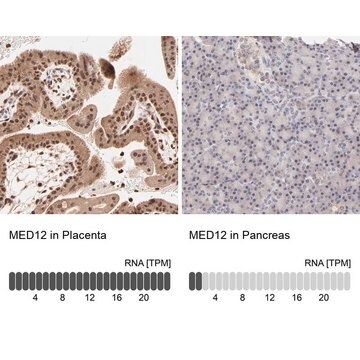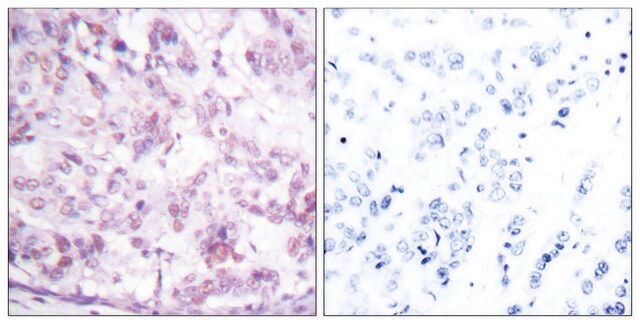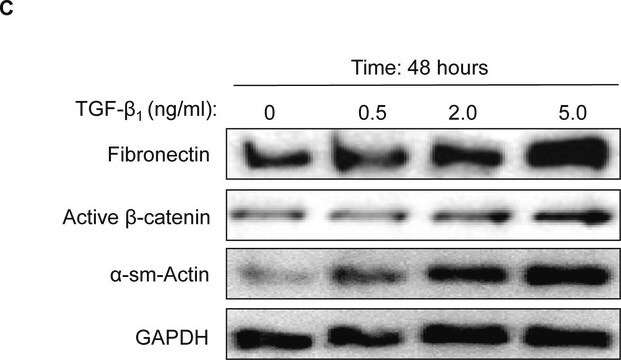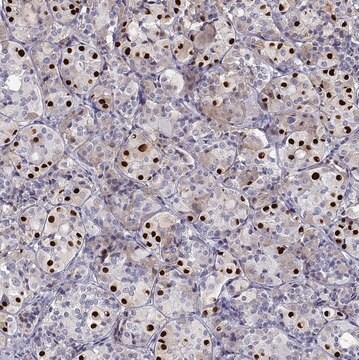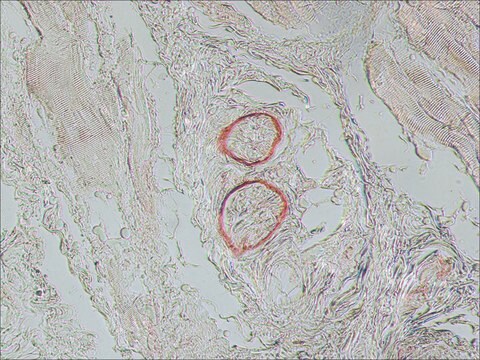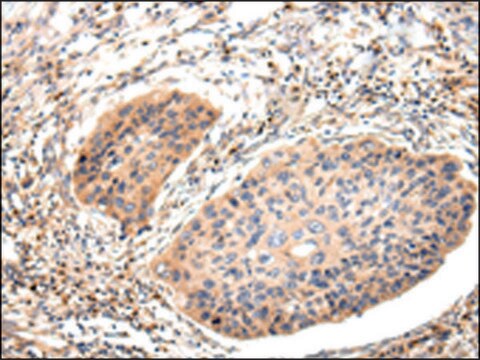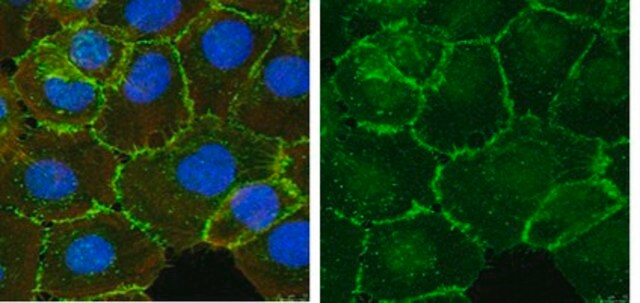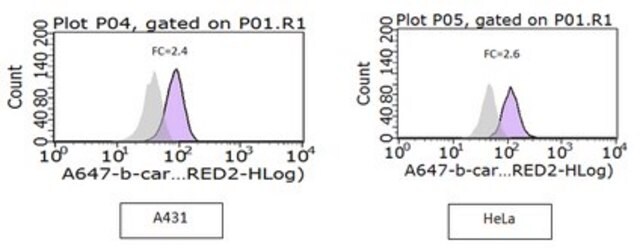WH0001499M2
Monoclonal Anti-CTNNB1 antibody produced in mouse
clone 1C9, purified immunoglobulin, buffered aqueous solution
Sinónimos:
Anti-CTNNB, Anti-catenin (cadherin-associated protein), beta 1, 88kDa
About This Item
IF
PLA
WB
indirect ELISA: suitable
proximity ligation assay: suitable
western blot: 1-5 μg/mL
Productos recomendados
origen biológico
mouse
Nivel de calidad
conjugado
unconjugated
forma del anticuerpo
purified immunoglobulin
tipo de anticuerpo
primary antibodies
clon
1C9, monoclonal
Formulario
buffered aqueous solution
reactividad de especies
human
técnicas
immunofluorescence: suitable
indirect ELISA: suitable
proximity ligation assay: suitable
western blot: 1-5 μg/mL
isotipo
IgG2aκ
Nº de acceso GenBank
Nº de acceso UniProt
Condiciones de envío
dry ice
temp. de almacenamiento
−20°C
modificación del objetivo postraduccional
unmodified
Información sobre el gen
human ... CTNNB1(1499)
Categorías relacionadas
Descripción general
Inmunógeno
Sequence
LFRTEPMAWNETADLGLDIGAQGEPLGYRQDDPSYRSFHSGGYGQDALGMDPMMEHEMGGHHPGADYPVDGLPDLGHAQDLMDGLPPGDSNQLAWFDTDL
Forma física
Información legal
¿No encuentra el producto adecuado?
Pruebe nuestro Herramienta de selección de productos.
Opcional
Código de clase de almacenamiento
10 - Combustible liquids
Punto de inflamabilidad (°F)
Not applicable
Punto de inflamabilidad (°C)
Not applicable
Equipo de protección personal
Eyeshields, Gloves, multi-purpose combination respirator cartridge (US)
Elija entre una de las versiones más recientes:
Certificados de análisis (COA)
¿No ve la versión correcta?
Si necesita una versión concreta, puede buscar un certificado específico por el número de lote.
¿Ya tiene este producto?
Encuentre la documentación para los productos que ha comprado recientemente en la Biblioteca de documentos.
Nuestro equipo de científicos tiene experiencia en todas las áreas de investigación: Ciencias de la vida, Ciencia de los materiales, Síntesis química, Cromatografía, Analítica y muchas otras.
Póngase en contacto con el Servicio técnico